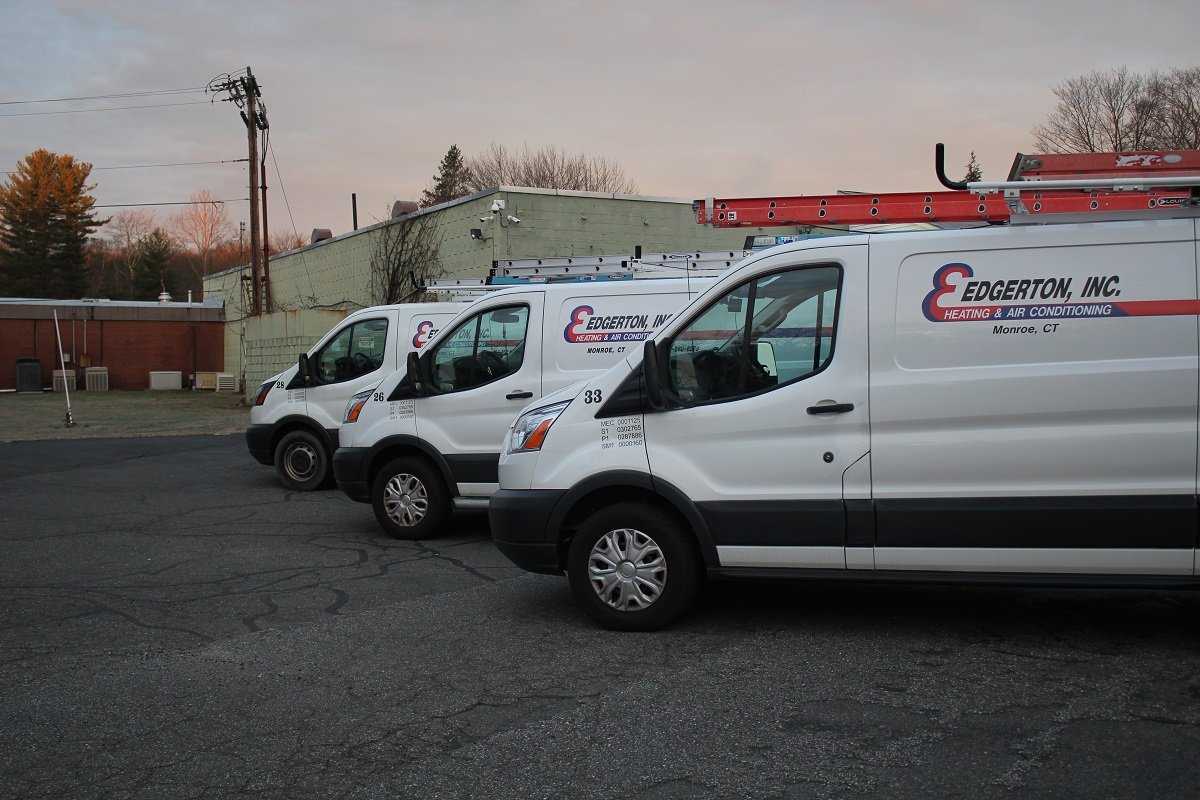1. Introduction
Maintaining a functional and efficient heating system is crucial, especially during the cold Connecticut winters. However, even the most well-maintained heaters can experience issues from time to time. It is important for homeowners to be able to recognize the signs that indicate their heater may be broken and in need of repair. In this article, we will explore the five telltale signs that your heater is broken and discuss what you can do about it. If you are in need of professional heating system repair in Connecticut, look no further than Edgerton HVAC, your trusted Connecticut HVAC contractor specializing in boiler repair and other heating system services.
2. Importance of a functional heater in your home or office
A functional heater is essential for maintaining a comfortable and healthy living environment, both at home and in the office. During the cold winter months, a broken heater can lead to a range of issues, including discomfort, increased energy bills, and even potential health risks.
Firstly, a functional heater ensures that the temperature inside your space remains at a comfortable level, allowing you to go about your daily activities without feeling the chilling effects of the cold. It also helps to reduce the risk of frostbite, hypothermia, and other cold-related health conditions.
Furthermore, a properly working heater helps to maintain a balanced indoor humidity level, preventing the growth of mold and mildew, which can cause allergies and respiratory issues. It also protects your furniture, flooring, and other belongings from damage caused by excessive moisture.
Lastly, a functional heater can save you money on energy bills. When your heater is broken or inefficient, it may run for longer periods or consume more energy to maintain the desired temperature. By ensuring that your heater is in good working condition, you can maximize energy efficiency and reduce your heating costs.
In the next section, we will discuss the three remaining signs that indicate your heater is broken, as well as provide solutions on what you can do about it. Stay tuned!
3. Common signs that indicate a broken heater
In addition to the previously mentioned signs, there are more clear indicators that your heater is broken.
One common sign is weak or no airflow coming from the vents. If you notice that the air coming out of your vents is significantly weaker than usual or there is no airflow at all, it could mean that your heater’s fan or blower motor is malfunctioning. This can result in poor heating performance and discomfort in your living or working space.
Another sign to look out for is strange noises coming from your heater. If you hear grinding, screeching, or banging sounds when your heater is running, it is a strong indication that there is a mechanical issue. These noises could be caused by a faulty motor or loose components within the heating system. Ignoring these sounds can lead to further damage and potentially expensive repairs.
Lastly, a sudden spike in your energy bills can also be a warning sign of a broken heater. If your energy consumption has significantly increased without any noticeable changes in your heating habits or the weather, it is likely that your heater is working harder than it should to compensate for its inefficiency or malfunction.
In the next section, we will delve into the solutions and actions you can take when encountering these signs of a broken heater. Don’t miss out on valuable tips to restore the comfort and efficiency of your heating system. Stay tuned!
4. Steps to take when you suspect your heater is malfunctioning
Now that you have identified the signs of a broken heater, it’s crucial to take immediate action to avoid further damage and discomfort. Here are the steps you should take:
1. Turn off the heater: As soon as you notice any of the signs mentioned, turn off your heater to prevent any potential hazards or worsening of the problem.
2. Check the thermostat: Ensure that your thermostat is set to the correct temperature and mode. Sometimes, a simple adjustment can resolve the issue.
3. Inspect for blockages: Check your air filters and vents for any obstructions. Dirty filters or blocked vents can significantly affect your heater’s performance.
4. Schedule professional maintenance: Contact a qualified HVAC technician to inspect and repair your heater. They have the expertise to identify the root cause of the problem and perform necessary repairs or replacements.
Remember, attempting to fix the heater yourself can be dangerous and lead to further damage. It’s always best to leave it to the professionals.
Stay tuned for the final section, where we will discuss preventive measures to keep your heater in good condition and ensure it functions efficiently.
5. Hiring a professional technician for heater repairs
Heater repairs can be complex and require the expertise of a professional technician. Attempting to fix the heater yourself can lead to further damage or potential safety hazards. When it comes to heater repairs, it’s always best to hire a qualified HVAC technician.
A professional technician has the knowledge and experience to diagnose the root cause of the problem and perform the necessary repairs or replacements. They have access to specialized tools and equipment that are essential for a proper repair.
When hiring a technician, it’s important to choose a reputable company with certified technicians. Look for companies that have a good track record and positive customer reviews. Additionally, consider asking for recommendations from friends or family who have had their heaters repaired in the past.
By hiring a professional technician, you can ensure that your heater is repaired correctly and efficiently, saving you from further inconvenience and discomfort. Stay tuned for the final section, where we will discuss preventive measures to keep your heater in good condition and avoid future breakdowns.
6. The potential dangers of ignoring a broken heater
Ignoring a broken heater can have serious consequences, both for your safety and your wallet. A malfunctioning heater can be a fire hazard, especially if it is emitting strange odors or making unusual noises. It can also release harmful gases, such as carbon monoxide, into your home, which can be deadly if left unchecked.
In addition to the potential dangers, ignoring a broken heater can also lead to higher energy bills. A malfunctioning heater will have to work harder to heat your home, resulting in wasted energy and higher costs.
To avoid these risks, it is crucial to take immediate action when you notice signs of a broken heater. Contact a professional technician as soon as possible to diagnose and repair the issue.
In the final section, we will provide you with some preventive measures to keep your heater in good condition and avoid future breakdowns. Stay tuned for valuable tips to maintain a comfortable and safe home environment.
7. Conclusion and final thoughts
Conclusion and Final Thoughts
In conclusion, understanding the signs of a broken heater is essential for your safety and the well-being of your home. Ignoring these signs can lead to serious consequences, including the risk of fire hazards, the release of harmful gases, and higher energy bills.
When you notice any sign of a malfunctioning heater, it is important to take immediate action. Contacting a professional technician to diagnose and repair the issue is the best course of action to ensure a safe and comfortable home environment.
Furthermore, taking preventive measures can help keep your heater in good condition and prevent future breakdowns. Regular maintenance, such as cleaning or replacing filters, checking for leaks, and scheduling professional inspections, is crucial for optimal heater performance.
By being proactive and addressing any issues promptly, you can enjoy a warm and cozy home while avoiding costly repairs and potential hazards. Stay tuned for more tips and advice on maintaining a comfortable and safe home environment.






